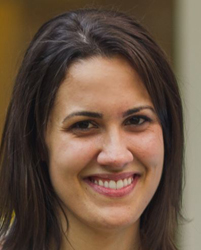Can 21st Century Cures Increase Clinical Trial Awareness?

By Anna Molinari, clinical trials specialist and member of the Coalition for Clinical Trials Awareness
A successful end may be in sight for Congress’ 21st Century Cures Act, which the U.S. Senate is expected to act upon in the coming weeks. The bill would expedite approval for drugs and medical devices and increase funding for medical research. It would also streamline clinical trials, an improvement if not quite a wholesale solution to clinical trials’ biggest impediment: chronic under-enrollment.
To solve that problem, the United States needs something more.
Attracting the participants needed to test new treatments can be slow, painstaking and ultimately unproductive. Research from the Tufts Center for the Study of Drug Development found that 11 percent of trial sites fail to enroll even a single patient. Thirty-seven percent under-enroll, and those who do meet their enrollment targets must sometimes double their original timeline to complete testing.
 It’s ironic. As a society, we are unanimous about the need to find treatments that cure Alzheimer’s, cancer and rare diseases. We have the t-shirts, the wrist bands and the 5K runs to show our support. But when it comes to testing breakthrough treatments, physicians and clinical trial sites come up short almost every time.
It’s ironic. As a society, we are unanimous about the need to find treatments that cure Alzheimer’s, cancer and rare diseases. We have the t-shirts, the wrist bands and the 5K runs to show our support. But when it comes to testing breakthrough treatments, physicians and clinical trial sites come up short almost every time.
The disconnect stems primarily from a lack of awareness. Too few patients understand how clinical trials work or when they’re eligible to participate, even though participation can provide unpatrolled access to investigative treatments. Thus, health care providers, patient advocacy organizations and industry representatives have come together through The Coalition for Clinical Trials Awareness to propose a federally-sponsored public awareness campaign on the value of clinical trials.
The concept will resonate with those of us who remember the government’s organ donation campaign from the 1990s, which urged registered donors to “Share your life. Share your decision.” The clinical trials challenge demonstrates some striking similarities; the issue impacts Americans across ethnic, gender and socio-economic lines and participation offers a unique chance to give back to society.
We envision a campaign that interweaves social media networks, television, radio, internet and print media to answer the public’s most basic questions. Should I participate in a clinical trial? Why does it matter? The campaign would personalize the value of clinical trials participation by putting faces to the community it benefits – your co-worker, your mailman, your bank teller, even your old high school prom date.
The reality is that we all suffer when medical innovation stagnates. But we all benefit when it thrives, creating devices and medications that improve and prolong life. Robust clinical trials can mean more data, shorter timelines for getting new medications to market, and fewer patients waiting unnecessarily for breakthrough medicines. Less burdened by health complications, these patients can better care for their families. They can bring new energy to their workplaces; newfound dedication to their neighborhoods and churches.
Improved clinical trials enrollment won’t aid just patients; it will bolster our society as a whole. But first we need to get the word out. And for that, we need the federal government’s help.
The 21st Century Cures Act offers an ideal legislative vehicle to drive increased clinical trials enrollment. The legislation already encourages greater use of adaptive trial design, “innovative statistical methods in clinical protocols,” and the use of biomarkers and surrogate endpoints to expedite approval for high-need patient groups. Combined with more robust clinical trials participation, these efforts could revitalize clinical research and spur the innovation that patients need.
To encourage participation, Congress might first create an advisory council to synthesize the input of federal agencies, health care providers, patient groups, private sector experts and clinical research groups. The council’s insight could shape educational materials that tout the importance of clinical trials and urge patients to participate. Finally, these materials could form the basis of a multi-year, federally sponsored awareness campaign to educate and mobilize the public.
Twenty-first Century Cures is poised to be landmark legislation. By adding provisions to increase clinical trials awareness and participation, policymakers can expand the bill to its full potential, triggering a powerful shift in the way Americans view, value and participate in clinical trials.
